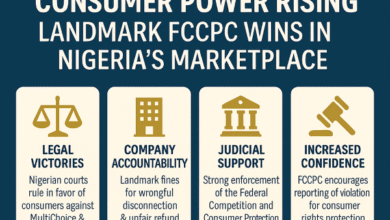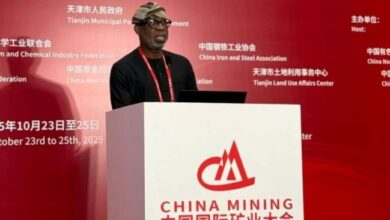Nigeria’s Oil & Gas Reforms Signal New Dawn for Investment – Renaissance Energy

Nigeria’s oil and gas industry is entering a critical inflection point as recent policy reforms begin to unlock investor confidence and reposition the sector for sustainable growth. According to Renaissance Africa Energy Company Limited, the combination of the Petroleum Industry Act (PIA), the Nigerian Oil and Gas Industry Content Development Act, and the commercial rebranding of the Nigerian National Petroleum Company Limited (NNPCL) is laying the foundation for renewed capital inflows and operational efficiency.
Reforms Reshaping Investor Confidence
Speaking at the 50th anniversary celebration of the Nigerian Association of Petroleum Explorationists (NAPE) in Lagos, Renaissance Managing Director Tony Attah, represented by Executive Vice President Olusegun Banwo, stressed that the sector is benefiting from a clearer regulatory environment and stronger corporate governance.
Attah noted that the restructured NNPCL—with its board drawn from international oil majors—has become a credible player, sending a powerful signal to the global investment community. “When people give money to organisations, it is not the asset they are financing – it is the people,” Attah remarked, underscoring the critical role of leadership integrity and professional management in attracting funding.
From Reform to Results: Building Energy Security
The shift in Nigeria’s energy governance is timely. Global capital for fossil fuels is becoming increasingly selective, and oil-producing nations must demonstrate transparency, competence, and bankable projects. Renaissance Energy itself exemplifies this new direction, having acquired Shell Petroleum Development Company’s (SPDC) onshore assets earlier this year—a landmark deal that positions it as a key driver of Nigeria’s upstream sector.
Attah said Renaissance Energy is not just targeting profit but is committed to sustainably driving energy security and industrialisation, aligning with Nigeria’s broader economic diversification agenda.
NAPE at 50: A Sector in Transition
NAPE President, Johnbosco Uche, lauded Renaissance’s strategic ambition, noting that indigenous companies are increasingly stepping into roles once dominated by international oil companies. This shift, combined with the government’s policy reforms, could see Nigeria unlock billions in fresh capital to rejuvenate exploration, expand production, and bridge infrastructure gaps.
At the anniversary event, Renaissance Energy received the “Strategic Investment in Nigeria’s Energy Future” award, further highlighting its role in shaping the next phase of Nigeria’s oil and gas development.
The Broader Context: Why This Matters
Nigeria remains Africa’s top crude exporter, but declining investment, oil theft, and underutilised refining capacity have constrained its potential. With global energy markets in transition, the reforms embedded in the PIA and the transformation of NNPCL represent a strategic pivot to restore competitiveness.
- Policy Clarity: The PIA provides a long-awaited regulatory framework, reducing investor uncertainty.
- Local Capacity: The Content Development Act ensures Nigerian professionals and businesses take leading roles.
- Commercial Discipline: NNPCL’s shift to a limited liability company underpins accountability and profit-driven operations.
For investors, these changes reduce perceived risk. For Nigeria, they mean fresh momentum in upstream exploration, midstream infrastructure, and downstream value creation.
Outlook: From Hydrocarbons to Energy Transition
While oil remains central, Nigeria must navigate the dual challenge of maximising its hydrocarbon resources while preparing for the global energy transition. The reforms are a step in the right direction, but sustaining investor trust will require consistent implementation, credible boards across all firms, and a robust focus on ESG compliance.
As Renaissance Energy’s leadership pointed out, Nigeria now has a “critical mass of talented Nigerians” ready to drive growth. The real test lies in whether governance and capital mobilisation can match this human potential.











